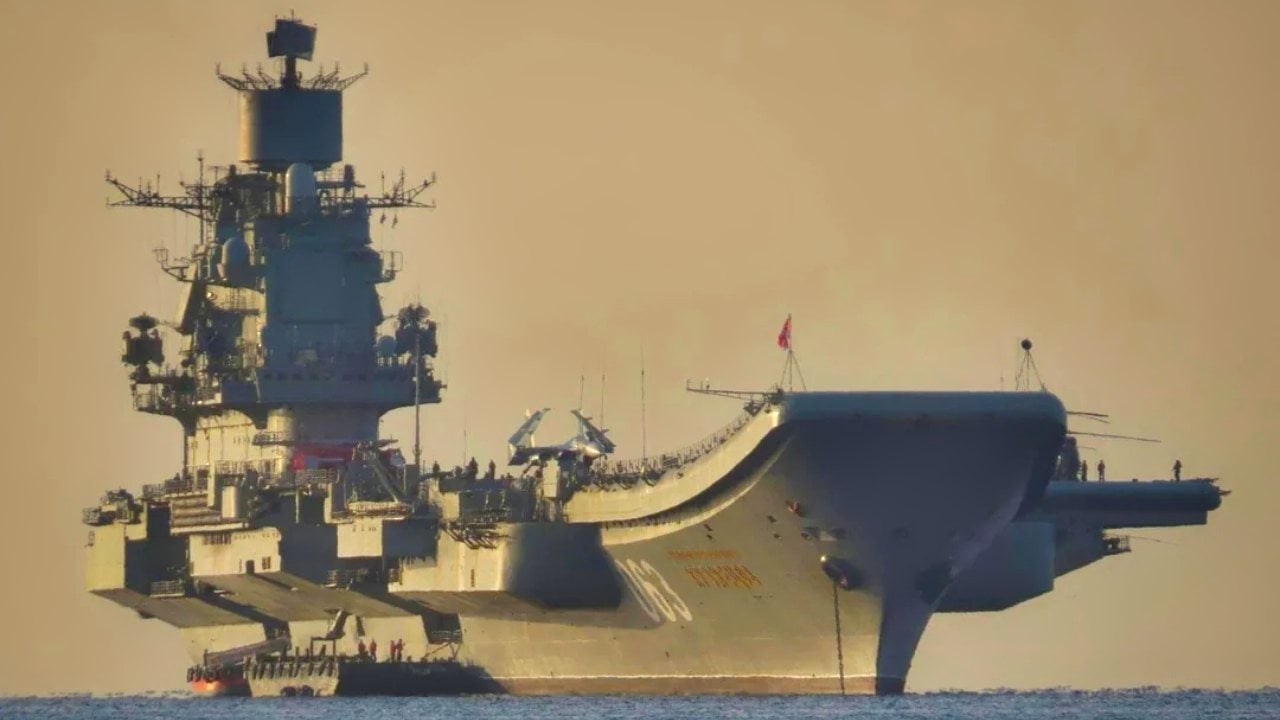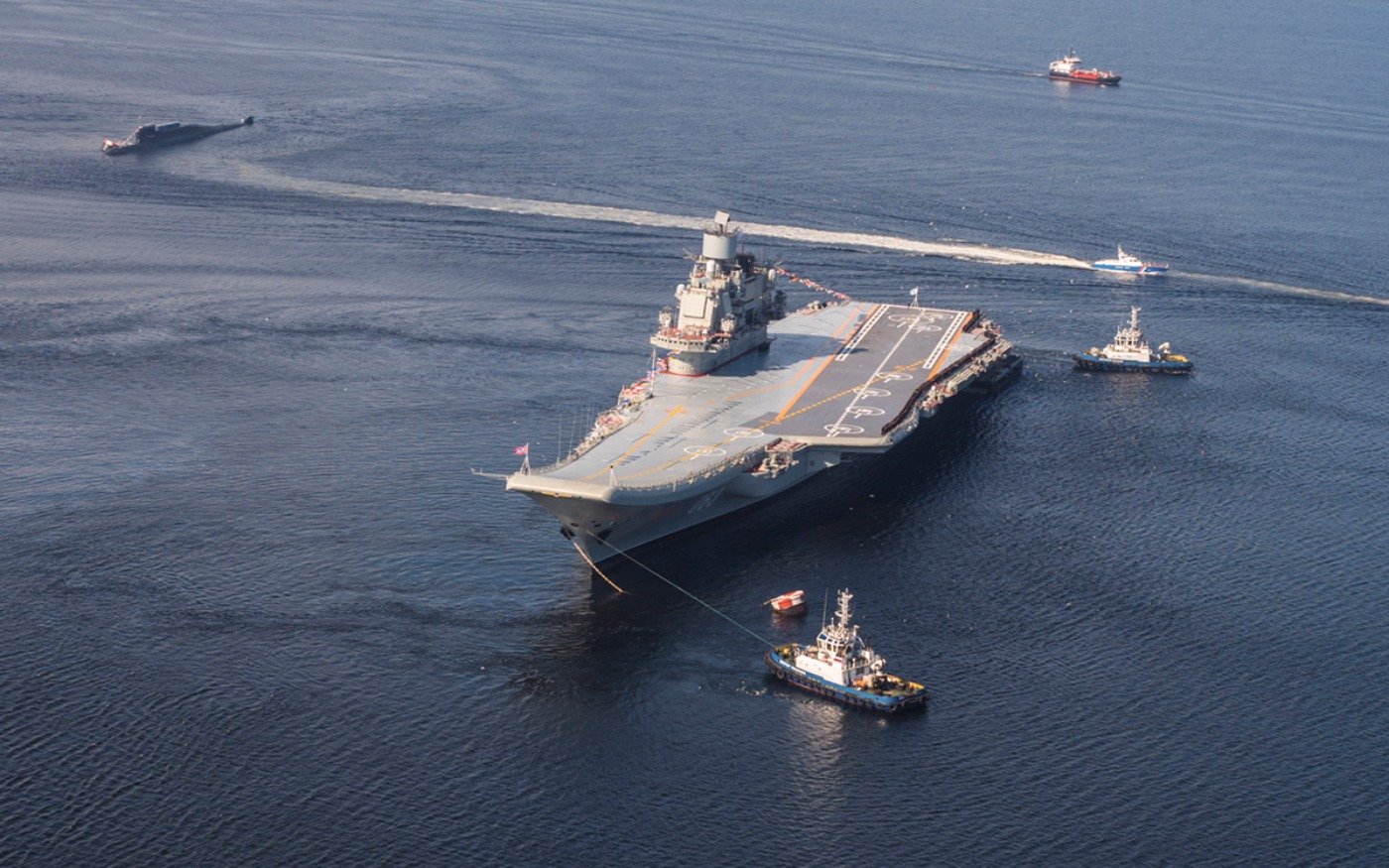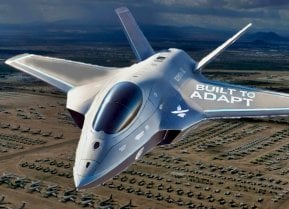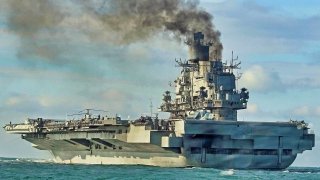Russia Will Never Be the Aircraft Carrier Superpower it Dreams of Being
Russia should maintain its strategic focus on land warfare rather than invest heavily in its navy, especially given its geographical limitations and economic constraints. Russia's naval ambitions, particularly building aircraft carriers, seem unrealistic due to the need for advanced shipyards and overseas bases.
All You Need to Know in 60 Seconds: Russia should maintain its strategic focus on land warfare rather than invest heavily in its navy, especially given its geographical limitations and economic constraints. Russia's naval ambitions, particularly building aircraft carriers, seem unrealistic due to the need for advanced shipyards and overseas bases.

-Instead, President Vladimir Putin prioritizes "super weapons" like hypersonic missiles, nuclear-powered torpedoes, and submarines. While the navy has demonstrated some global reach, such as in Syria, economic sanctions and the war in Ukraine have constrained its ability to expand.
-Aircraft carriers are unlikely to be a priority for Russia in the foreseeable future.
Russia's Naval Ambitions Face Geographic and Economic Limits
Should Russia maintain its strategic focus on land warfare, or should it allocate more resources to its navy?
Then, there is the aircraft carrier question. There are reasons for Russia not to even bother with aircraft carriers. Money can be plowed into hypersonic missiles. The drone-like nuclear-powered and nuclear-tipped torpedo called the Poseidon is one to watch from Russia’s maritime branch. Meanwhile, the navy can continue to launch its Kalibr cruise missiles from ships arrayed in the Black Sea, and it can continue to blockade Ukraine’s Black Sea ports.
New Russian aircraft carriers are not a possibility at this time, and they probably will not be a priority any time soon.
Putin’s Focus on Super Weapons
Even Vladimir Putin knows this.
Russia’s president often speaks about prestige super-weapon projects such as hypersonics, nuclear-powered cruise missiles, and new intercontinental ballistic missiles.
Putin wants the navy to maintain a permanent base in the Mediterranean at the Tartus naval installation in Syria and to make sure that the port in Kaliningrad is open. He has mentioned building aircraft carriers in the past, but this is likely propaganda.

A new carrier would require more capable shipyards and additional overseas bases to support it.
Russia’s maritime geography keeps it hemmed in by the Baltic, Bering, and Black Seas. Unlike the United States, which has unfettered access to the Pacific and Atlantic Oceans, Russia is left without access to large open waters. This limitation would keep its aircraft carriers from thriving, even if they could ever be built in numbers.
Another factor that hamstrings the navy is Russia’s economy, which is mainly based on natural resource extraction – mainly of oil and natural gas, with the gas transported by pipeline. Russia doesn’t need a large, carrier-equipped navy to maintain the supply lanes that support an economy based on large-scale imports and exports. It needs more of a small, regional navy, rather than a global, blue-water navy. Submarines, and not capital ships, provide the seaborne leg of the nuclear triad, and Russia prefers to focus its navy on undersea warfare.
Stringing Together More Global Deployments
However, the global reach of Russia’s surface fleet is changing.
Moscow has attempted to deploy ships around the world and in exercises with other allies such as China. In 2017, the Russian navy visited Namibia, the Philippines, South Africa, and the Seychelles, although these missions were more for diplomacy and prestige than any military necessity. Russia also sent ships to fight against militants in Syria, and these vessels launched Kalibr cruise missiles at insurgent positions.

Russia’s navy will struggle to support missions with a greater reach than Syria and Ukraine. Furthermore, economic sanctions will take a bite out of the Russian shipyards, and with a reduction in gross domestic product, building more ships will be difficult. The U.S. State Department blacklisted the United Shipbuilding Corporation at the beginning of the war.
It appears that Russia is not destined to be a naval power with aircraft carriers. It has to focus more on its army and air force at the moment – not necessarily its navy. Russia’s geography and the burden of securing its borders require a large, standing army. Its strategic needs favor the development of nuclear missiles, hypersonics, and submarine-launched drone torpedoes. The war in Ukraine has taken attention and priority status away from the navy, and sanctions have hobbled shipbuilding.
Aircraft carriers will not be forthcoming in Russia as time, money, and resources will be needed elsewhere.
Expert Biography
Dr. Brent M. Eastwood is the author of Humans, Machines, and Data: Future Trends in Warfare. He is an Emerging Threats expert and former U.S. Army Infantry officer. You can follow him on Twitter @BMEastwood. He holds a Ph.D. in Political Science and Foreign Policy/ International Relations.
All images are Creative Commons.


